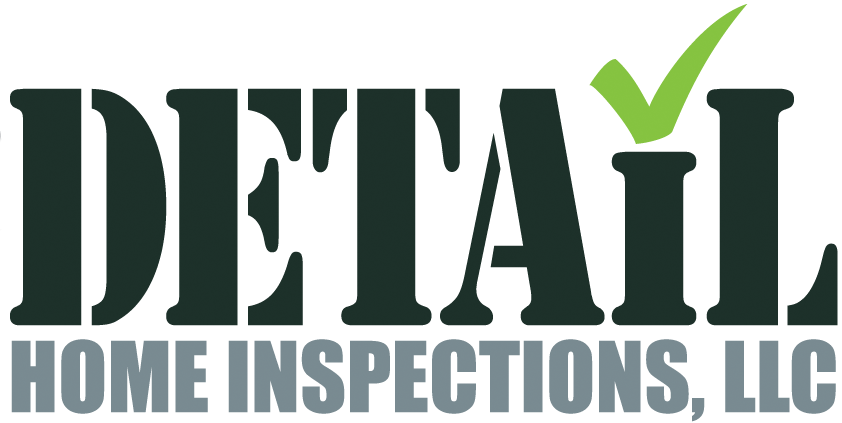
601 Route 206 Suite 26-306, Hillsborough NJ 08844
Standards of Practice for Inspecting Pools & Spas
- Definitions and Scope
- Limitations, Exceptions and Exclusions
- Residential Pool and Spa Inspection
- Glossary of Terms
- Definitions and Scope
1.1. A residential pool and spa inspection is a non-invasive, visual examination of the accessible areas of a pool or spa (as delineated below), performed for a fee, which is designed to identify defects within specific systems and components defined by these Standards that are both observed and deemed material by the inspector. The scope of work may be modified by the Client and Inspector prior to the inspection process.
- The residential pool and spa inspection is based on the observations made on the date of the inspection, and not a prediction of future conditions.
- The residential pool and spa inspection will not reveal every issue that exists or ever could exist, but only those material defects observed on the date of the inspection.
1.2. A material defect is a specific issue with a system or component that may have a significant, adverse impact on the value of the property, or that poses an unreasonable risk to people. The fact that a system or component is near, at, or beyond the end of its normal, useful life is not, in itself, a material defect.
1.3. A residential pool and spa inspection report shall identify, in written format, defects within specific systems and components defined by these Standards that are both observed and deemed material by the inspector. Residential pool and spa inspection reports may also provide causes for these defects and possible future options that may include remediation or further evaluation. Residential pool and spa inspection reports may include additional comments and recommendations.
- Inspectors are not required to inspect or perform any action not explicitly detailed in this these Standards.
- Limitations, Exceptions & Exclusions
2.1. Limitations:
- Inspectors are not required to inspect or perform any action not explicitly detailed in these Standards.
- Inspectors are not required to come into direct contact with pool or spa water.
- Inspectors are not required to enter the pool or spa.
- Inspectors are not required to drain a pool or spa in order to inspect it.
- A residential pool and spa inspection is not technically exhaustive.
- A residential pool and spa inspection will not identify concealed or latent defects.
- A residential pool and spa inspection will not deal with aesthetic concerns, or what could be deemed matters of taste, cosmetic defects, etc.
- A residential pool and spa inspection does not include items not permanently installed.
2.2. Exclusions:
- The inspector is not required to determine:
- the condition of any component or system that is not readily accessible.
- the service life expectancy of any component or system.
- the size, capacity, performance or efficiency of any component or system.
- the cause or reason of any condition.
- the cause for the need of correction, repair or replacement of any system or component.
- future conditions.
- compliance with codes or regulations.
- the presence of evidence of rodents, birds, bats, animals, insects, or other pests.
- the presence of mold, mildew or fungus.
- the existence of environmental hazards.
- the existence of electromagnetic fields.
- any hazardous waste conditions.
- any manufacturers’ recalls or conformance with manufacturer installation, or any information included for consumer protection purposes.
- correction, replacement or repair cost estimates.
- estimates of the cost to operate any given system.
- The inspector is not required to operate:
- any system that is shut down.
- any system that does not function properly.
- any system that does not turn on with the use of normal operating controls.
- any shut-off valves or manual stop valves.
- any electrical disconnect or over-current protection devices.
- any alarm systems.
III. The inspector is not required to:
- perform any action that contradictions any laws or regulations.
- activate any component of the pool or spa.
- move any personal items or other obstructions, such as, but not limited to: furniture, equipment or debris.
- dismantle, open or uncover any system or component.
- enter or access any area that may, in the inspector’s opinion, be unsafe.
- do anything that may, in the inspector’s opinion, be unsafe or dangerous to him/herself or others, or damage property, such as, but not limited to negotiating with pets.
- inspect decorative items.
- offer guarantees or warranties.
- offer or perform any engineering services.
- offer or perform any trade or professional service other than a pool and spa inspection.
- research the history of the property, or report on its potential for alteration, modification, extendibility or suitability for a specific or proposed use for occupancy.
- determine the age of construction or installation of any system, structure or component of a unit, or differentiate between original construction and subsequent additions, improvements, renovations or replacements.
- determine the insurability of the property.
- Residential Pool and Spa Inspection
- The inspector shall inspect from ground level:
- the plumbing;
- the filters;
- the lights;
- any adjoining structure as it relates to the pool or spa;
- the valves;
- the solar heating system;
- the pumps and motors;
- the electrical system;
- the filtration system;
- the pool heater; and
- the safety barriers.
- The inspector shall describe:
- the type of swimming pool or spa;
- details impacting the inspector’s ability to inspect the unit, including water clarity;
- the condition of visible components or systems present in the unit;
- the type of drain installed;
- any readily accessible component with functional or material defects;
- the type of filtration system; and
- the types of safety barriers.
III. The inspector shall report as in need of correction:
- observed indications of active pool or spa shell leaks;
- damaged water line tiles;
- damaged or faulty drain covers, pumps; heaters or filter housings;
- inadequate drainage;
- improper settlement of pool deck; and
- any visibly unsafe or improper pool equipment, electrical connections, or bonding connections.
- Glossary of Terms
- accessible: In the opinion of the inspector, can be approached or entered safely, without difficulty, fear or danger.
- activate: To turn on, supply power, or enable systems, equipment or devices to become active by normal operating controls.
- adverse effect: Refers to anything that may constitute, or potentially constitute, a negative or destructive impact.
- alarm system: Warning devices, installed or freestanding, including, but not limited to, spillage detectors.
- component: A permanently installed or attached fixture, element or part of a system.
- condition: The visible and conspicuous state of being of an object.
- correction: Something that is substituted or proposed for what is incorrect, deficient, unsafe, or a defect.
- cosmetic defect: An irregularity or imperfection in something, which could be corrected, but is not required.
- decorative: Ornamental; not required for the operation of essential systems or components.
- describe: To report in writing a system or component by its type or other observed characteristics in order to distinguish it from other components used for the same purpose.
- determine: To arrive at an opinion or conclusion pursuant to examination.
- dismantle: To open, take apart or remove any component, device or piece that would not typically be opened, taken apart or removed by an ordinary occupant.
- engineering service: Any professional service or creative work requiring engineering education, training and experience, and the application of special knowledge of the mathematical, physical and engineering sciences to such professional service or creative work as consultation, investigation, evaluation, planning, design and supervision of construction for the purpose of assuring compliance with the specifications and design, in conjunction with structures, buildings, machines, equipment, works and/or processes.
- enter: To go into an area to observe visible components.
- evaluate: To assess the systems, structures and/or components.
- evidence: That which tends to prove or disprove something; something that makes plain or clear; grounds for belief; proof.
- examine: To visually look (see inspect).
- function: The action for which an item, component or system is specially fitted or used, or for which an item, component or system exists; to be in action or perform a task.
- functional: Performing, or able to perform, a function.
- functional defect: A lack of or an abnormality in something that is necessary for normal and proper functioning and operation, and, therefore, requires further evaluation and correction.
- identify: To notice and report.
- indication: That which serves to point out, show, or make known the present existence of something under certain conditions.
- inspect: To examine readily accessible systems and components safely, using normal operating controls, and accessing readily accessible areas, in accordance with this Standards of Practice.
- inspection report: A written communication (possibly including images) of any material defects observed during the inspection.
- inspector: One who performs an inspection.
- installed: Attached or connected such that the installed item requires a tool for removal.
- material defect: A specific issue with a system or component that may have a significant, adverse impact on the value of the property, or that poses an unreasonable risk to people. The fact that a system or component is near, at, or beyond the end of its normal, useful life is not, in itself, a material defect.
- normal operating controls: Describes the method by which certain devices (such as thermostats) can be operated by ordinary occupants, as they require no specialized skill or knowledge.
- observe: To visually notice.
- operate: To cause systems to function or turn on with normal operating controls.
- readily accessible: A system or component that, in the judgment of the inspector, is capable of being safely observed without the removal of obstacles, detachment or disengagement of connecting or securing devices, or other unsafe or difficult procedures to gain access.
- report (verb form): To express, communicate or provide information in writing; give a written account of. (See also inspection report.)
- shut down: Turned off, unplugged, inactive, not in service, not operational, etc.
- system: An assembly of various components which function as a whole.
- technically exhaustive: A comprehensive and detailed examination beyond the scope of an inspection that would involve or include, but would not be limited to: dismantling, specialized knowledge or training, special equipment, measurements, calculations, testing, research, analysis, or other means.
- unsafe: In the inspector’s opinion, a condition of an area, system, component or procedure that is judged to be a significant risk of injury during normal, day-to-day use. The risk may be due to damage, deterioration, improper installation, or a change in accepted residential construction standards.



